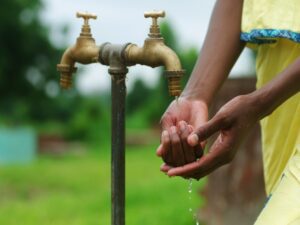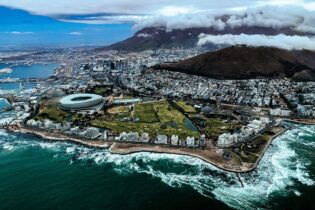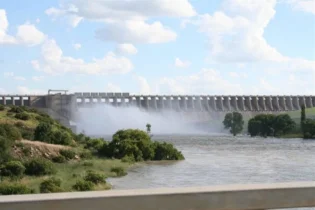Access to water is a basic human right, as emphasised by World Water Day on 22 March, which focuses on solving the global water and sanitation crisis.
“If you touch on the community aspect, load shedding is an inconvenience, but as soon as you do not have access to clean water, it becomes a human rights issue,” comments Elisabeth Nortje, Associate Director – Environment, Africa at globally trusted infrastructure firm AECOM. “Water is a basic service and critical human need and hence it is key to make it available to all people on the continent,” says Jan-Willem Van Huyssteen, Associate Director – Water Systems, Africa, AECOM. There is a great urgency to effect change in the industry to provide sustainable water supply and responsible sanitation management. Incidents such as the severe droughts in Cape Town and Gqeberha , the widespread failure of the sanitation systems in KwaZulu-Natal and other areas is an indication of a concerning trend in the industry that sustainable water supply and sanitation management requires intervention. World Water Day is about accelerating change because water affects everyone and requires collective action. “I start to think about the children, the elderly and the sick who do not have that basic human right of clean water, and I realise how privileged I am to have running water in my house and to have relatively clean water all the time,” says Nortje. Another issue is permitting compliance, with South Africa’s major water users like industry and mining being compelled to conserve this precious natural resource for future generations. Associate Engineer Jonathan Schroder says AECOM’s expertise lies in reconciliation strategies for water supply systems or catchment areas. Such strategies attempt to ensure water security for the time it takes major water projects to get off the ground, which can be up to 30 years. “We have been doing these studies for the past decade, and what we are seeing is a slippage in terms of the implementation of such strategies,” points out Schroder, adding it is partly due to administrative challenges associated with finance approvals. In many places, the cheapest resources have already been developed and exploited. Any incremental additional volume of water therefore has a tariff implication, with these marginal costs having to be shouldered by already cash-strapped municipalities. Ironically this is resulting in a delay in agreements and implementation on some of the bigger schemes that have lower increases in the unit cost of water due to the scale of the commitment. Schroder concurs with Nortje that so-called ‘water shedding’ must be avoided at all costs.“Electricity can be switched on and off. Load shedding has an impact on the electrical infrastructure, but not nearly the same impact as water shedding would have on water infrastructure and water leakages and losses.”
The problem is exacerbated when municipalities have to limit water resources to the detriment of their own income stream, which is needed to tackle the problem of insufficient water resources. End user awareness and education is critical, which is where global platforms like World Water Day play a vital role. “It poses a massive challenge because ordinary citizens are often not aware of the extent of our hydrology’s variability, and how much water we are actually using. Our dams are full right now due to the very wet years we have had. But we are actually over-extracting from them; it is only that we have been lucky enough to have had this wet period that we have the luxury of some limited time to address the problem,” warns Schroder. However, infrastructure capacity constraints are already looming as a constraint to water supply, even if we have temporary ‘extra’ water resources. “We cannot increase the capacity of treatment (for potable supply) infrastructure until we have a reliable additional resource. While there may seem like there is sufficient water in our dams and river systems, to build additional treatment, plant capacity or pump stations and pipes would be premature. If we go into a dry cycle, which is likely to happen in the near future, building that additional infrastructure before the resource is secured is not only premature, but it will also accelerate the speed of depletion of the limited water resource, and incur costs the utilises that cannot be recouped,” warns Schroder. “The fact that the pressure is building is going to force a need for change in end user behaviour,” he argues. For example, following Cape Town’s Day Zero, the city’s per capita use is now significantly lower. “Right now, the pinch has not really been felt, so there is a bit of lethargy in our response to the looming challenges. For me, the concern with water is that if the situation is not corrected and users do not change their behaviour and we move into a water shedding scenario, the problem is the people who are most vulnerable will likely be impacted the most.” Schroder says: “Unfortunately, many end users are unaware of the risks of their current behaviour.” This includes not paying for or conserving water, which reduces the revenue available to municipalities to maintain existing infrastructure build for the future. In this regard, AECOM is looking to partner with the private sector on a range of initiatives to mitigate this risk. “We still have time to act, and preserve largely functioning water supply systems, but the time to act is now.” AECOM is well positioned as a local large business with global reach to support clients in solving these very challenging problems. Utilising wastewater as an alternative water source for either industrial reuse or potable supply is an example of such an initiative. AECOM has a strong local process engineering team capable of providing the necessary support to local clients.





